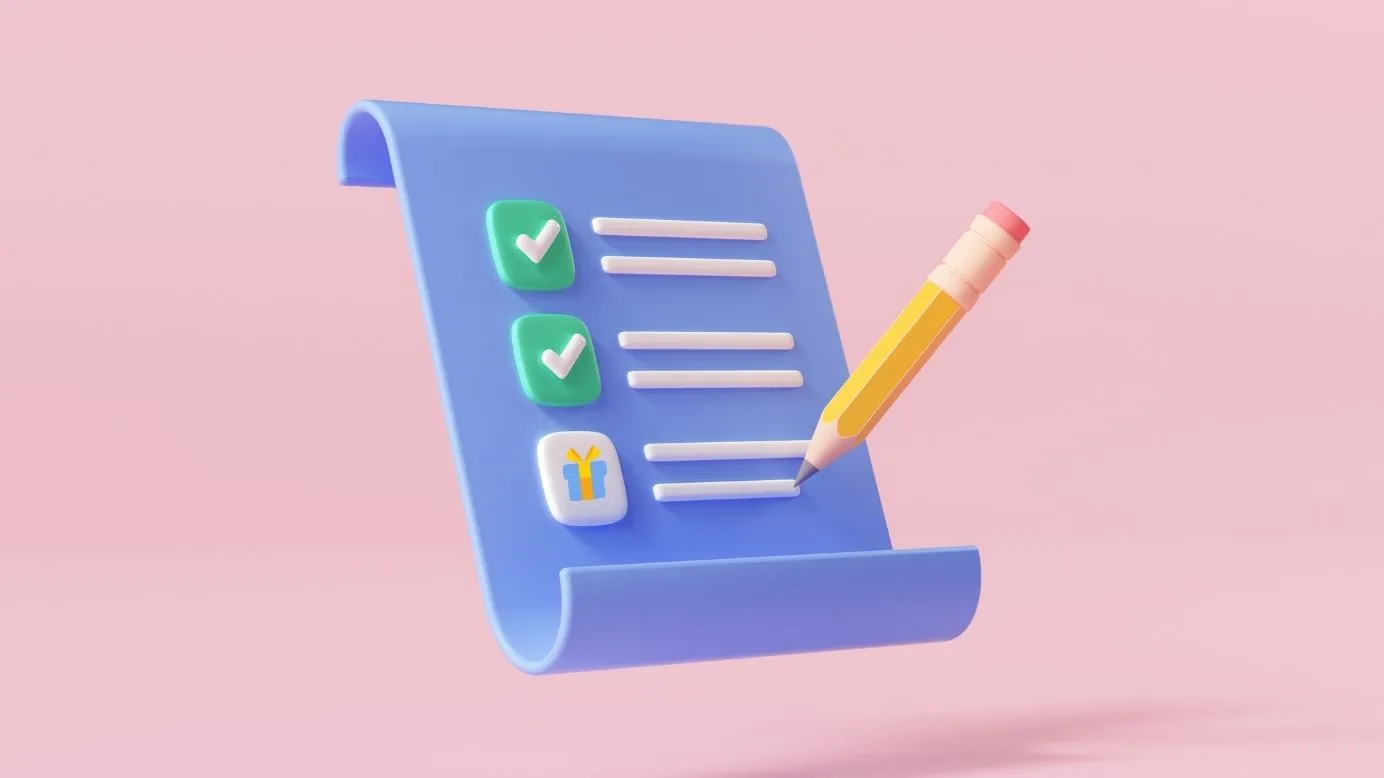A Definitive Guide to Survey Rewards and Incentives
Survey rewards are gifts or offers that are sent to participants for completing a survey. These promotional gifts encourage participants to not only complete surveys on time but also provide honest feedback.
On this page
Survey incentives play a crucial role in boosting response rates and ensuring high-quality feedback. Offering the right rewards not only motivates participants but also enhances engagement and trust.
From monetary rewards to exclusive content, choosing the right incentive can make all the difference. In this guide, we explore the best survey incentive strategies to maximize participation and value.
What are survey incentives or survey rewards?
According to HubSpot, survey incentives are gifts or offers that are offered to participants for completing a survey. These promotional gifts encourage participants to not only complete surveys on time but also provide honest feedback.
Survey incentives or survey rewards, however, you call it, come in various forms. While some businesses make use of monetary offers (either money or points—which can be redeemed for gift cards or prizes), others promote trial subscriptions and freemium products.
A survey’s incentive depends on three things:
- The type of survey
- The information you want to obtain
- The target participants
People’s time is extremely valuable, and survey incentives are a way to value their time and opinions.
Why are survey incentives important?
How do survey incentives benefit businesses?
Incentives may have a modest or large influence on individuals depending on the number of hoops they must jump through.
Here are some of the benefits of incentives in surveys:
1. Higher response rates
A monetary incentive for investing a few minutes cannot be ignored by any respondent. It's the proverbial carrot dangling from a stick. They will put forth the effort. According to an NCBI report, in 49 studies, when paired with monetary incentives, survey questionnaires delivered to consumers received double the response.
2. Doubles the reach and impact
Because they are swamped with tasks or do not have spare time, some audiences are resistant to survey invites. When paired with an incentive, however, they are easily convinced to engage in the survey.
A simple example would be marketers attempting to reach out to healthcare professionals in order to solicit their feedback. Request declined to cold outreach, but tasks completed when a reward is promised and double the honesty when rewards are personal and meaningful.
3. Gives multiple chances to succeed
Persuasion is in the nature of marketing. If the original message is not read, contact the receiver again, but this time with an incentive. A follow-up email with the promised reward will stimulate the recipient's interest, making them eager to contribute their few minutes in exchange for monetary or non-monetary compensation.
4. Excites even if surveys are long or boring
The excitement will wane as the survey takes longer to finish. People deliberately choose shorter activities because they have a goldfish's attention span and less time to dedicate to ad-hoc tasks.
However, a few others like the pre-announcement in which the time required to finish the survey is specified. When rewards are also announced ahead of time, respondents are more likely to be patient during the survey marketing campaign.
5. Forges trust even when it’s challenging
Using a poll to get individuals to open up might be difficult since many people are hesitant to divulge sensitive information. This keeps critical information walled in and out of everyone’s sight. This is ineffective to build strategy.
A valuable survey reward carefully selected for the survey participant will encourage them to trust and trade information important to marketers so that the perception or feedback can be used to enhance service features that meet or surpass expectations.
Types of survey incentives ideas to maximize responses
Offering the right survey incentives can significantly improve response rates and the quality of feedback collected. Below are different types of survey incentives businesses can use to encourage participation:
1. Monetary incentives
Cash-based rewards provide immediate value to participants and are among the most effective survey incentives.
Examples:
- Cash rewards – Direct payments via PayPal, Venmo, or bank transfer ensure quick gratification.
- Prepaid debit cards – Reloadable Visa or Mastercard gift cards offer flexible spending options.
- Gift cards – Popular options like Amazon, Starbucks, or iTunes allow participants to redeem rewards on their preferred platform.
Best for: Market research surveys, consumer feedback, and high-value B2B surveys where direct compensation is expected.
2. Discount or coupon-based incentives
Offering exclusive discounts encourages customers to engage with your brand while rewarding them for their time.
Examples:
- Percentage discounts – “Get 10 percent off your next purchase” encourages future shopping.
- Buy-one-get-one (BOGO) deals – Incentivizes purchases while rewarding customer loyalty.
- Free shipping codes – Eliminates a common purchase barrier, increasing sales conversions.
Best for: E-commerce businesses, SaaS companies, and subscription services looking to convert survey respondents into repeat customers.
3. Product or service perks
Providing brand-related perks enhances customer loyalty while making survey participation more appealing.
Examples:
- Free trial extensions – SaaS companies can offer extra days or months on premium plans.
- Exclusive access to premium features – Gives users a sneak peek at upcoming tools or services.
- Complimentary products or samples – Retail brands can send free samples of new or best-selling products.
Best for: SaaS companies, fitness and wellness brands, and direct-to-consumer businesses.
4. Loyalty points and reward programs
Encouraging participation through loyalty program incentives can increase customer retention while gathering insights.
Examples:
- Extra reward points – Credit users with additional loyalty points redeemable for future purchases.
- Bonus airline miles – Airlines can offer frequent flyer miles for survey completion.
- Cashback offers – Financial services brands can provide a percentage of the customer’s next purchase as a rebate.
Best for: Retail, hospitality, travel, and financial services businesses with established loyalty programs.
5. Sweepstakes and prize drawings
Instead of guaranteed rewards, sweepstakes allow participants to enter for a chance to win big prizes.
Examples:
- Gift card giveaways – “Complete this survey for a chance to win a 500-dollar Amazon gift card.”
- Luxury vacation packages – Offering an all-expenses-paid trip can attract more survey participants.
- Tech gadget raffles – Prizes like iPhones, smartwatches, or gaming consoles drive higher engagement.
Best for: Large-scale surveys where offering individual rewards is not feasible but engagement is needed.
6. Charitable donations
For socially responsible audiences, offering donations as a survey incentive appeals to their values.
Examples:
- Direct monetary donations – “For every survey completed, we will donate five dollars to [charity name].”
- Tree planting initiatives – “Complete a survey, and we will plant a tree in your name.”
- Scholarship funding – Brands can contribute to education funds as a way of giving back.
Best for: Non-profits, sustainability-focused brands, and companies looking to engage socially responsible customers.
7. Exclusive content and early access
Providing knowledge-based rewards adds value to survey respondents by offering something insightful in return.
Examples:
- Access to industry reports – Share detailed market insights and exclusive research findings.
- Invite-only webinars – Offer expert-led training sessions to survey participants.
- Early access to new features – Beta test programs allow users to try upcoming product updates before launch.
Best for: B2B brands, SaaS companies, and knowledge-based businesses looking to engage professionals or industry experts.
8. Gamified rewards and badges
Turning survey participation into a fun experience can boost engagement and encourage completion.
Examples:
- Leaderboard challenges – Rank participants based on the number of surveys completed and reward top scorers.
- In-app achievements – Gaming apps can offer virtual rewards or limited-edition badges.
- Point-based redemptions – Participants accumulate points to unlock exclusive perks over time.
Best for: Mobile apps, gaming platforms, and community-driven websites.
How to create a successful survey incentive program?
Now that you know what types of incentives to give your respondents, the ultimate question is — how to go about creating a successful survey incentive program.
Without further ado, let’s jump into the steps:
1. Set the budget and objectives
It all starts with the right survey budgeting. The main purpose of this step is to plan the underlying costs for a survey — right from the stage of initiation to implementation to execution. This gives you more clarity on how much money needs to be shelled out and what would be the projected outcome from it.
2. Target the right participants
For your survey incentive program to be successful, having the right target respondents onboard is crucial. This is where demographic segmentation and representative data play a key role. Leverage your business’s market research data for this.
3. Choose personalized incentives
If messages and branding can be personalized, why can’t they be applied in the way you deliver rewards? Believe it or not, the only way to make survey rewards credible is to make them personal and meaningful.
Personalized market research incentives not only grab respondents’ attention but also keep the whole journey excited. This is where digital rewards come into the picture.
The beauty of using them is that they can be easily customized to match your brand image with personalized messaging and content, ensuring that your brand name is registered in the minds of your respondents when they get their incentives.
Depending on your survey length and time, you can choose any of these options like Experiential gifts, gift coupons, charity and donations, prepaid cards and deals and subscriptions.
Digital rewards save processing and shipping costs while enabling you to track your distribution right from your computer.
4. Decide on the incentive value
While incentives enhance participation, poorly-valued prizes may attract unsuitable applicants (which results in unusable or off-spec data). When surveys are distributed to individuals picked at random, it easily elicits spontaneous responses.
5. Determine the frequency of the incentive distribution
So how many times do you want to incentivize your participants? This depends on your survey. If the survey is fairly short, one-time incentives work the best.
On the other hand, if your survey is extensive and has the need to be executed in multiple phases for a longer time period, then your incentives should be split in proper intervals to keep the participants engaged. This also discourages the participants from exiting the survey prematurely.
6. Track the results
With digital rewards, things are easy and straightforward. It lets you track to whom the incentives are being sent and whether the participants redeemed the gift card or not. This, in turn, helps you measure the overall cost and gives a clearer picture of the outcome.
Choose the right incentive platform to maximize survey engagement
Survey incentives are more than just perks—they’re a powerful strategy to drive engagement, boost response rates, and collect meaningful feedback. When participants feel valued, they’re more likely to provide honest, high-quality insights that help shape better business decisions.
The key lies in offering rewards that are relevant, enticing, and easy to redeem. With Plum, you can automate and personalize survey rewards effortlessly. With a global rewards catalog, seamless automation, and instant delivery, Plum simplifies survey incentives, making it effortless to reward participants with gift cards, digital experiences, or loyalty perks.
Whether you need to motivate a niche audience or scale rewards across different regions, Plum has you covered.
Turn surveys into engaging experiences. Make rewarding simple—Book a demo with Plum today!


















